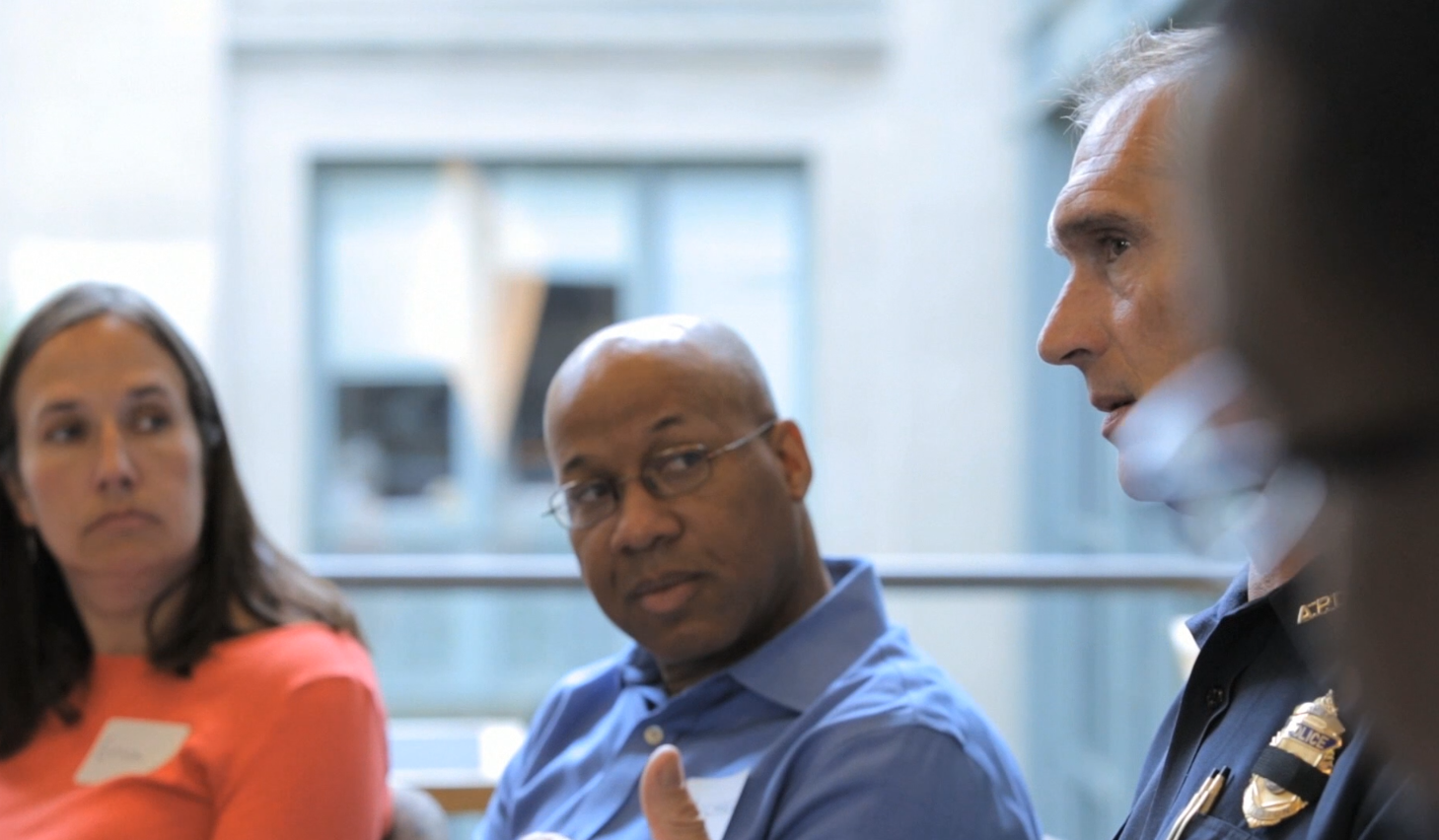
Using the PCD Videos
Facilitation is a critically important lawyering and human skill. In a world where genuine dialogue across deep political divides seems ever more rare, trained facilitators can help create spaces for citizens to engage in challenging conversations that promote mutual learning and build empathy. To answer the need for resources in this area that both educate and inspire, the Harvard Negotiation and Mediation Clinical Program has created this video of an unrehearsed dialogue on police/community relations facilitated by two professional facilitators.
The “Police-Community Dialogue” video resource serves as an example of a real-life dialogue and provides a window into the challenging decisions that facilitators in any contexts must make.
There are two parts to the video:
- The police-community dialogue itself
- A retrospective interview between the facilitators of the dialogue and Professor Robert C. Bordone, who provides commentary and insights into essential questions for facilitators of all kinds
The TEACHING NOTE provides in-depth discussion questions that educators might use to explore various themes in facilitation. URLs to the full dialogue, the full interview with the facilitators, and each of the separate chapters can be easily shared with students according to the schedule you have constructed for your course.
Full-length Videos:
Watch the entire police-community dialogue session as it happened in real time:
Introduction to the Live Dialogue Video
Live Dialogue Video
Watch the entire post-dialogue commentary with Professor Robert C. Bordone and Facilitators Toby Berkman and Danielle Bart:
Introduction to the Live Interview
Live Interview Video
Video Segments Organized Thematically:
Chapter 1: Framing the Conversation
Chapter 1: Interview on Framing the Conversation
Chapter 2: Setting an Agenda
Chapter 2: Interview on Setting an Agenda
Chapter 3: Shared Norms
Chapter 3: Interview on Communication Agreements
Chapter 3: Interview on Establishing Norms
Chapter 4: Introductions / Facilitator as Participant
Chapter 4: Interview on Introductions
Chapter 4: Interview on Facilitator as Participant?
Chapter 5: Engaging the Group and Handling First Voices
Chapter 5: Interview on Engaging the Group
Chapter 5: Interview on Handling First Voices
Chapter 6: Framing Questions and Confronting Divergent Responses
Chapter 6: Interview on Framing Questions
Chapter 6: Interview on Confronting Divergent Responses
Chapter 7: Managing Participation Levels
Chapter 7: Interview on Managing Participation Levels
Chapter 8: Closing the Conversation and Deciding When to Intervene
Chapter 8: Interview on Closing the Conversation
